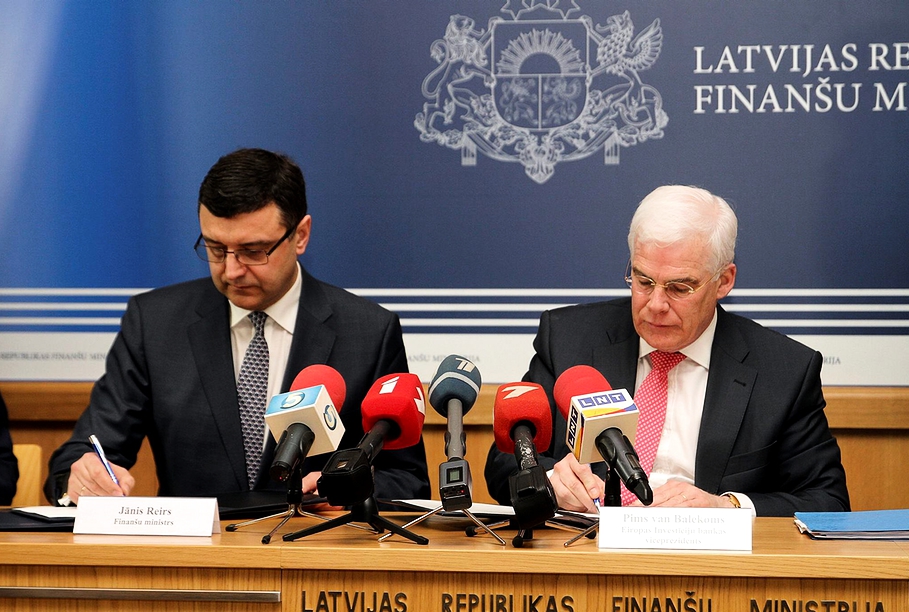Pim van Ballekom, the EIB Vice-President responsible for lending in Latvia, remarked upon the new lending facility as follows: “By supporting key investments, the EIB is stepping up its efforts to strengthen the competitiveness of the Latvian economy and promote the effective use of the EU grant funds earmarked for Latvia. Sustainable economic growth and a better quality of life for the people of Latvia are important issues, thus we are building on the excellent cooperation with the Latvian authorities and joining forces with the European Commission to support a large number of projects that contribute in this direction.”
Janis Reirs, Latvia’s Minister of Finance added: “It is definitely a significant boost for Latvia’s economic growth, enabling us to become more competitive.”
EIB belongs to all 28 European Union (EU) member states. The bank borrows money from the capital market and issues loans with a low interest rate to projects which are focused on infrastructure development, energy supply, or environmental protection in both the EU and its neighborhood.
EIB will be also involved in the so-called Juncker's investment plan. The eagerly-awaited plan, the keystone of the European Commission President Jean Claude Juncker's five-year mandate, involves the EU setting up a €21 billion fund with the aim of drawing in 15 times that amount in private investment.
The €200m loan will be available as co-financing for selected projects under the Latvian operational programmes “Growth and Employment” and “Rural Development” for 2014–2020. The EU Structural Funds will meet a fixed percentage of the costs of eligible projects, with the remaining part being covered from the State budget or by drawing on this EIB facility. The loan will primarily support projects in the research, education and ICT sectors. Latvian SMEs, climate change mitigation projects and employment programmes will also be financed by this loan. The EIB will also promote the electrification of the Latvian railway network and the modernization of Riga’s tram infrastructure.
The main goals of the Rural Development Plan are investments to increase the number of economically active and market-oriented farms, support to increase their competitiveness, as well as promotion of the cooperation in agriculture and forestry.
All these investments will contribute to improving the lives of the Latvian population through a clean environment and sustainable transport infrastructure, which will in turn help to create the conditions for smart, sustainable and inclusive growth.
According to the EIB, this loan is a continuation of the sound partnership between the EIB and Latvia, with the Bank of the European Union having already made available €750m under a similar EU funds co-financing facility covering the period from 2007 to 2013. To obtain an EU grant for an eligible project, the Government must provide the co-funding. While the co-funding will largely be provided from budget funds, the EIB facility will be available to supplement these funds and to ensure that Latvia uses as much of the available EU funding as it can.






























